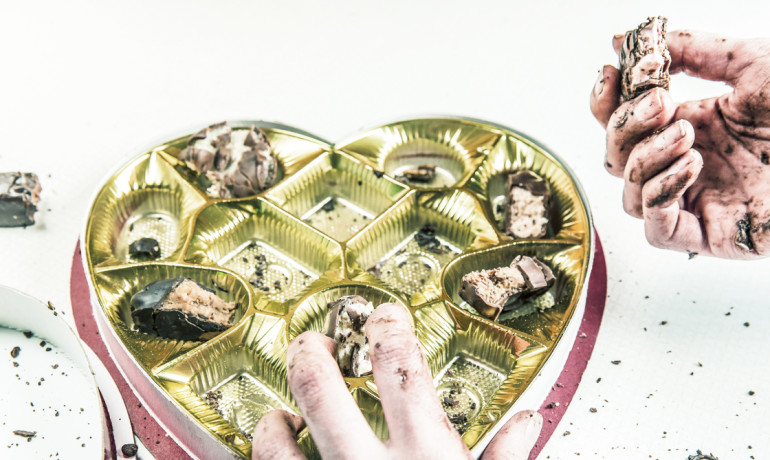By definition, guilt is a negative emotion, a sense that you’ve done something wrong. But we all know the feeling of a guilty pleasure, the special kind of enjoyment that comes from doing something we shouldn’t.
Ravi Dhar, professor at the Yale School of Management, was inspired to investigate the psychological mechanism behind the phenomenon after watching a colleague eat a chocolate bar and articulate that unlikely mix of pleasure and guilt.
Dhar, in collaboration with professors from Northwestern University and Penn State, ran a series of experiments demonstrating how induced feelings of guilt can actually boost pleasure.
“For certain types of items, when you feel guilty, you may actually get more pleasure,” says Dhar, professor of management and marketing and director of the Center for Customer Insights. Underpinning this finding is the idea that guilt and pleasure are often tightly coupled in people’s minds, so activating one of these concepts can draw out the other.
‘WHAT HAPPENS IN VEGAS…’
This connection could prove a powerful insight for marketers, says Dhar; appealing to a negative attribute that is connected to positive feelings can be “much more effective at persuading people than directly talking about positive attributes.”
Consider “What happens here, stays here,” Las Vegas’s now-iconic (if invariably misquoted) 2003 advertising campaign. The slogan is crafted to attract tourists by emphasizing guilt, which, in turn, gives rise to feelings of pleasure.
(In 2008, as the economy collapsed, the slogan was replaced by a series of more chipper but less effective phrases, including “Vegas right now” and “Crazy times call for crazy fun.” “What happens here” came back in 2009.)
GETTING PEOPLE TO DONATE
This affective power of guilt bleeds into other domains as well. In another experiment, Dhar and colleagues tested for the impact of guilt on charitable giving.
When respondents were presented with the choice of giving $5 to a charity or using it for a Starbucks “flat white” espresso drink, both the likelihood and the amount of charitable donations increased compared to a second treatment group asked to choose between a charitable donation and a $5 laundry detergent.
“When we compare this five dollars to something indulgent, like a cup of flat white in this case, people are more likely to donate,” says Dhar. Mentally contrasting a good cause with a guilty pleasure seems to prod people toward giving.
Both of these findings are part of Dhar’s broader research on how consumers make choices. We generally think that we’re making choices for considered, rational reasons, he says, but in fact, “the things you feel in the moment, or the things you think in the moment, have a disproportionate effect on your choices, even if they’re irrelevant to the choice.” Consumers are more likely to purchase a convertible on a sunny day, for example, or pay more for artwork when in a good mood.
Marketers, says Dhar, need to consider how these incidental feelings or cognitions, for better and worse, alter consumer decisions.
Information gathered experimentally about the emotional catalysts for decisions turns out to be much more predictive than simply asking consumers why they made a certain choice. “People don’t have trouble giving reasons,” Dhar says. “The question is, are those the reasons that drove the choice? In most cases they’re not.”
Fuente: www.futurity.org
